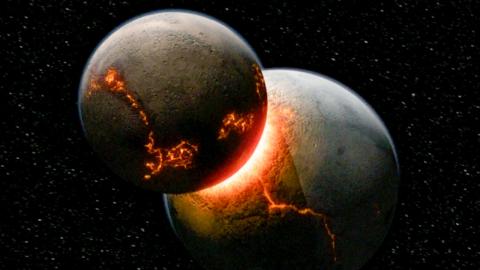What If Earth Crashed Into Another Planet?

advertisement
VOICE OVER: Noah Baum
WRITTEN BY: Benjamin Welton
We sometimes take the Solar System for granted. The planets revolve around the sun exactly as they should, and Earth travels its own orbit, along a path that's completely free from danger. But, what if the Earth's course changed, and our world collided with another? What would the damage be? And would anything survive?

